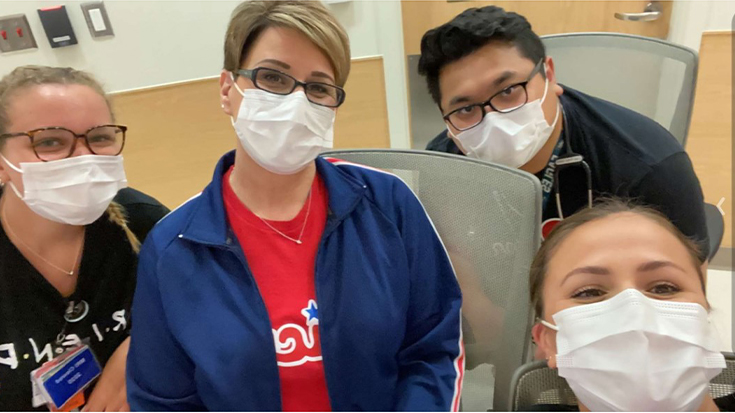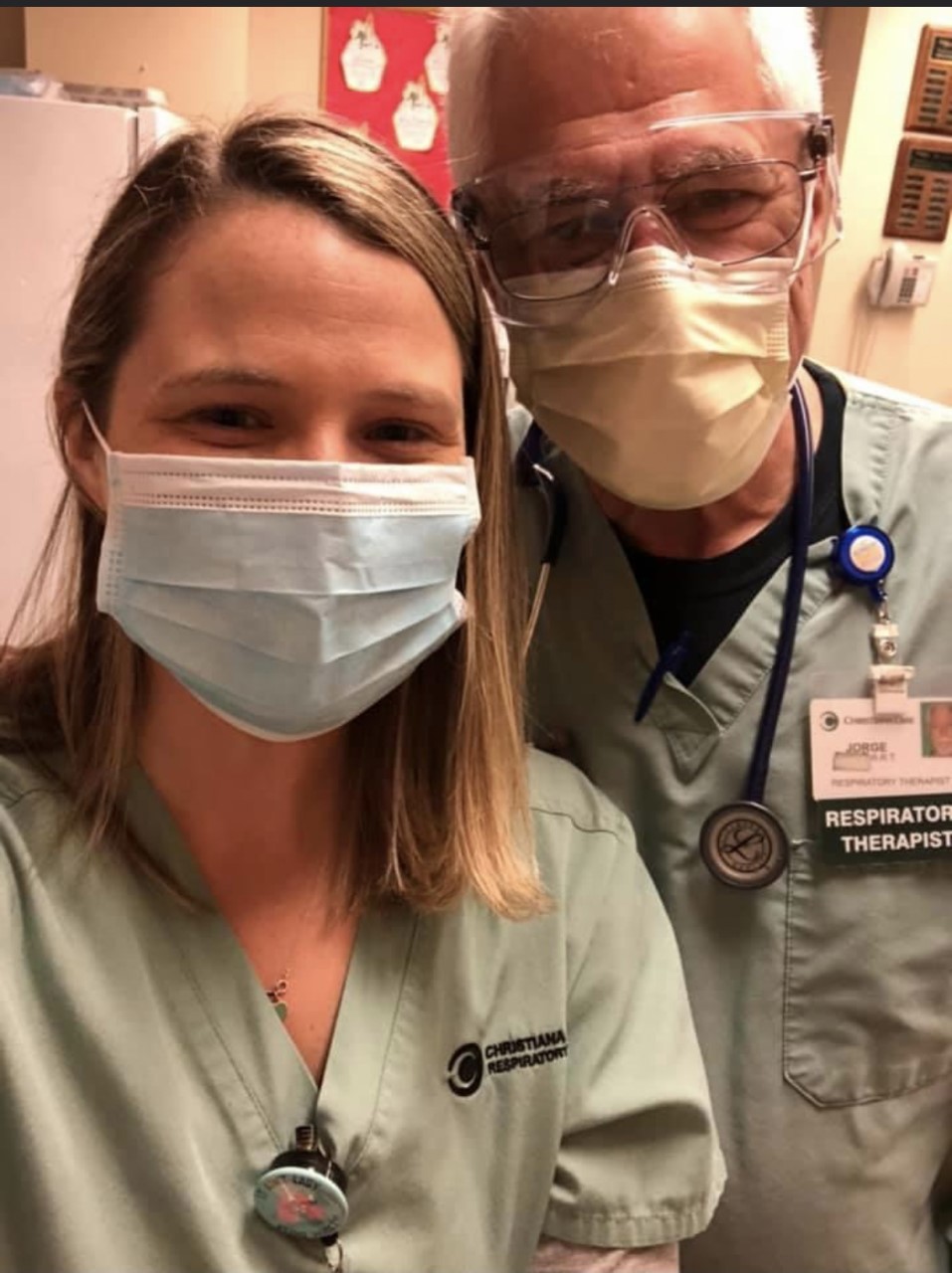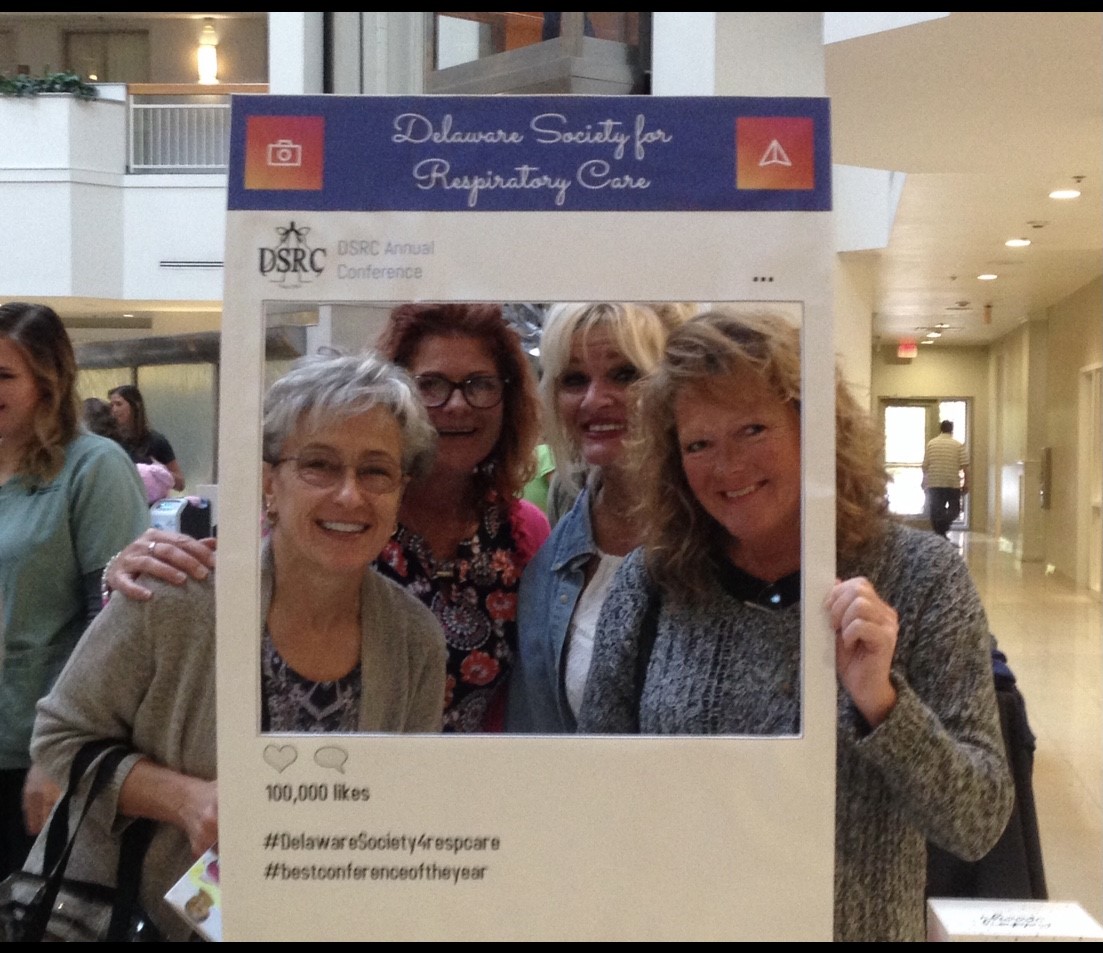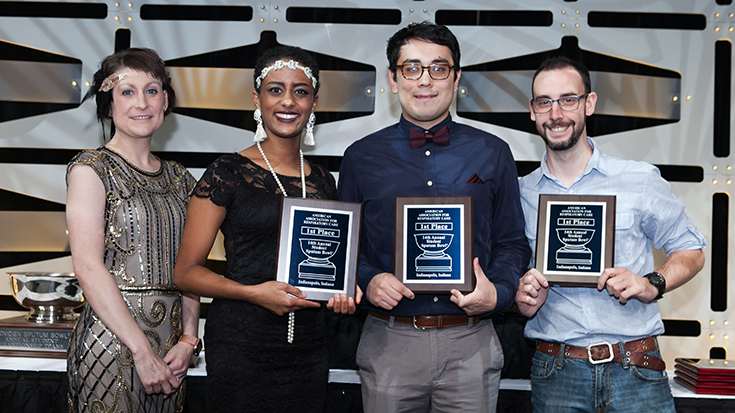
Jasmine Jackson, Tracy Foster, Andy Heng, and Rachel Masterson working nights in the PICU.
There is no question that this past year has been trying for all of us, especially in health care. Add in the challenges of everyday life, and you have quite the combo.
How can we continue to care for our patients when we need to care for ourselves?
You may have heard the term burnout regularly used in the past, but it is now more evident than ever.
A friend to dampen the flames
Last week while at work, I was a part of an intimate conversation on mental health that involved a few RTs and RNs. I honestly do not know how the conversation began, but I’m glad it did. On my drive home that night, I recalled that Gallup question that I am sure we are all familiar with: Do you have a best friend at work?
 Michelle and George worked a lot of nights at Christiana Care’s SCCC until his recent retirement a few months ago. They refer to themselves as work besties.
Michelle and George worked a lot of nights at Christiana Care’s SCCC until his recent retirement a few months ago. They refer to themselves as work besties. According to the Gallup Poll, those who had a best friend at work were 43% more likely to report having received recognition and praise for their work in the last week. LinkedIn’s study, Relationships @Work, revealed that 46% of professionals worldwide believe that work friends are important to their overall happiness.
Most of us live by the idea of separating our two lives: leave work at work and leave home at home. But should we?
Foster an environment of sharing and acceptance
As health care professionals, we must feel empowered and comfortable speaking openly about our feelings. As RTs, any given day can present us with traumas, sadness, and death. Witnessing daily events like these while coping with our personal everyday life are handled differently by everyone.
 Terry Press and Doris Ryan have been work best friends for almost 30 years.
Terry Press and Doris Ryan have been work best friends for almost 30 years. We spend such a large portion of our lives at work. So much so, our coworkers become our families. Close or not, we subconsciously learn what gets under one another’s skin and what habits we have. We share patients and the emotions involved in treating and caring for them. We share experiences as we grow to love the patients we care for. And, at times, we grieve together when a patient passes.
And that’s just at-work emotions. There is plenty we often bring with us or concerns running in our minds as we arrive for our shift. We come in on days after an argument with our spouse or child. We come in on days after a recent loss of a family member, friend, or pet. We often come in on days when our minds are consumed with thoughts outside of work issues.
While some can hide their emotions with a smiling face, others may not be able to avoid interference in work duties and conversation.
Look for chances to help your coworkers
These unwanted emotional experiences without a fitting outlet can cause a domino effect of unintended negativity throughout a department. A need for an outlet is a prime example of why having a “best friend” at work is so important. Imagine, instead of noticing that someone is having a bad day and ignoring it, you confront them or pull them aside and ask them if they are ok? How about letting that person know you are there for them if they want to talk? A simple gesture showing you care can go a long way in strengthening relationships and team camaraderie.
For our Managers out there, it is essential now more than ever to let your staff know that you are there for them. Reaching out to team members individually and frequently reminding them of resources and self-care techniques are extremely important. Even when this pandemic is over, the care we provide and the loss we experience daily will never end.
Work friends keep you going strong
A “best friend” at work is not the same as your classic idea of a best friend. A best friend at work helps you get through a long workday when you are just not feeling it. They are someone who you can text or call when you have a silly question about a piece of equipment or a protocol. A work best friend is someone you can vent to about something work-related or non-work-related that is bothering you.
Confiding in one another brings a sense of comfort, can increase staff engagement, and improve teamwork. This past year, COVID-19 put a damper on outside-of-work parties and get-togethers. As we return to a level of normalcy, I hope RT departments resume some of these morale-boosting activities. Engaging in extracurricular work activities allows us to see each other in a different light. They allow us to see our fun and relaxed sides. We get a chance to meet our colleague’s significant others and families. We see the personal side of our colleagues that we tend to overlook.
Be there for your colleagues
After the conversation I first spoke of above, I felt a stronger connection and appreciation for my coworkers, and they did as well. We are all human and need the support of each other. I can only wish that conversations like those were more common in the workplace. Imagine what morale would be like.
Like the motto we have all seen, “You never know what someone is going through, so be kind.” I challenge you to ponder this quote daily.
Be that person that your coworker can confide in when needed. Find someone you can confide in when you need an outlet. Be someone’s best friend at work.
Email newsroom@aarc.org with questions or comments, we’d love to hear from you.


















